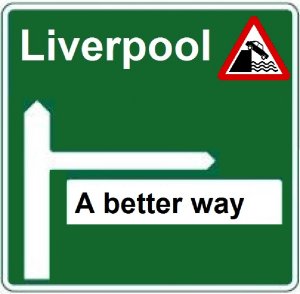Catholic Medical Quarterly Volume 62(4) November 2012
Reports:
Medical Ethics Alliance meeting on the LCP
 At an excellent Medical Ethics Alliance conference in June
2012, it was clear that the LCP has many substantial
difficulties, but that it can also bring some benefits to care
of the dying as well. The key paper given at the conference by
Professor Pullicino is reproduced
in this journal, and was widely reported in the national
press.
At an excellent Medical Ethics Alliance conference in June
2012, it was clear that the LCP has many substantial
difficulties, but that it can also bring some benefits to care
of the dying as well. The key paper given at the conference by
Professor Pullicino is reproduced
in this journal, and was widely reported in the national
press.
The key question to ask is whether or not the LCP can cause death in some who might not die. That is a grave concern. The editor of the CMQ has certainly observed good and appropriate use of the LCP. Excellent care of the dying is still an absolute must and we cannot allow those who are dying to be deprived of pain relief and other comfort measures. Conversely, if wrongly diagnosing imminent death can cause death (as Professor Pullicino ably pointed out at the June meeting in London) then that is very wrong indeed. The press coverage of the meeting led to a lively debate. The comments below, which were published by the Daily Mail are telling stories that we have heard replicated many other times.
“My father was put on the pathway , I was told he was dying. It was horrendous to see him like it. Three days later I left his room briefly , he had been entered onto the second phase when I was out of his room. Later in the day I challenged the doctor and accused her of killing my father and insisted she take him off his morphine driver etc or I was going to involve a solicitor , she reluctantly agreed to do this , later that day my father awoke, ate a cooked dinner and went home two days later and lived another two years . This is provable and there are other independent witnesses to this“
Geoff, Abergaveny, 20/6/2012 22:53
I certainly believe this could and does happen as I saw my friend die in a hospice over a period of three weeks. Yes, she had seizures and was told she had a malignant brain tumor and she was in the hospital a couple days before she was admitted as a charity patient to the hospice. On the day before she was admitted she was trying to be brave and laughed and joked a little. After she was admitted to the hospice she never woke up again except for a short period of time a week and 1/2 before she died. She was given sedatives, pain medication and a catheter is was run so there will be no spills. She was not to be given food or drink as long as she was unconscious or in a coma as it would just feed the tumor and liquids would just make her choke. I saw her trying to speak to us for that short period of time in which she woke up. She understood what we were saying and tried to speak. I wish I had never seen her that day and it will haunt me forever. She died of starvation and lack of fluids.
This same thing happened to our mother 6 months ago, we took her into hosp because of confusion after a fall out of bed, and was unable to eat. She was hydrated in A@E and picked up. On the ward it was a different story, 2 days later a dr and nurse had a meeting with me saying there was no hope for my mother, and it would be better to let her go, stop food and then give her morphine, it would take her two weeks to die. We were shocked, myself and my brothers were asking them to feed her and keep her alive, they decided, and 2 meetings later it was the same story, so we took her out. She is still alive and living with me six months on now. I have been her carer for the last 15 years without a problem, and when I needed the help the hospital seemed the right place. Was I wrong, never again will I ever put her into a hospital. This doctor is absolutely right in what he has written about old people, I witnessed it all.
